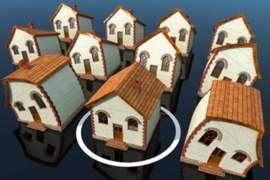
Residential Property Management Roles

A residential property manager is an effective resource that should be utilized by all individuals looking to manage a home, condo, or an apartment. Furthermore, an individual in association with commercial property, an apartment building, or seemingly any other property can use the resources offered be a residential property management firm.
A residential property management company will utilize their vast resources to properly manage the life cycle of all property. Personal property, tooling, equipment, and physical capital assets are incorporated to repair, build, renovate, and maintain all end items.
One of the primary roles of a residential property manager is to act as a liaison between the owner of the property or landlord on behalf of the tenant. The typical duties of a residential property management company include: accepting rent, providing a buffer for landlords who desire a disconnection from their tenants, and perhaps most importantly, responding to and addressing all maintenance problems.
As a result of their numerous roles, the role of a residential property manager has many facets. In addition to the aforementioned duties, a residential property manager must also manage the accounts and finances of the properties and if necessary participate in litigation with tenants, insurance agencies, and contractors.
To properly execute these varied roles, a residential property management company must obtain a proper license in the field of real estate. All residential property managers must be licensed to legally collect rent, and list properties for rent. Owners who privately manage their own properties are not required to obtain such licenses.


















